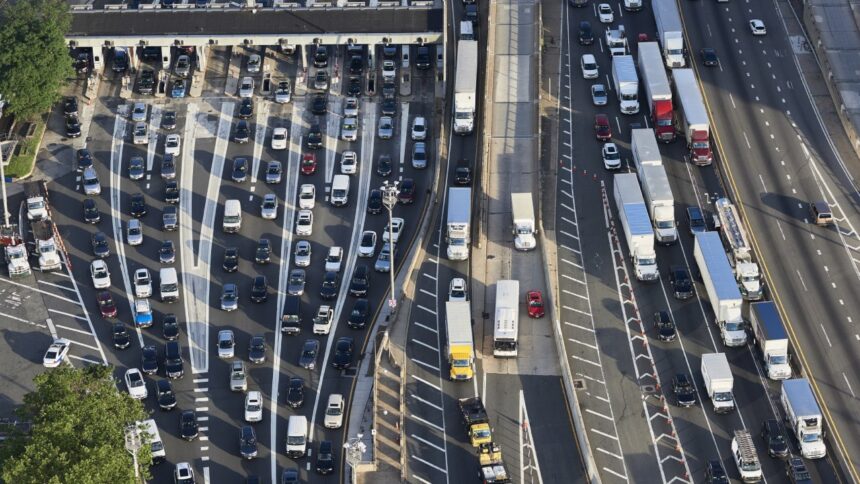Driving without insurance is illegal in New Jersey and is by no means a good idea. In addition to the out-of-pocket costs you will face if you are involved in an accident, you will also face multiple penalties, perhaps even prison time. If you are stopped by a police officer or get involved in an accident, you will need to create a certificate of insurance in the form of a paper card or electronically. Having no evidence can have serious consequences. We do research into driving without insurance in New Jersey to help you understand Garden State’s auto insurance laws and regulations, ensuring you get the right coverage behind the wheel.
New Jersey Auto Insurance Law
New Jersey’s auto insurance law is unusual in that it offers two options for drivers. Standard policies feature minimum requirements for physical injury liability and property damage liability, as well as several other types of compensation outlined below.
However, if standard coverage is denied or you cannot afford it, the state will allow basic policies. This includes low liability requirements and does not include uninsured/uninsured driver coverage. You may not be able to purchase conflicts or comprehensive coverage from some insurance companies. The cost of basic policy is lower, but it reduces robust protection and can leave out-of-pocket expenses incurred in the event of a serious accident.
Most insurance professionals recommend purchasing standard coverage if you can afford it. This type of insurance has a wider coverage type, and is more likely to cover all costs if you are in an accident or if you have another type of vehicle accident, such as theft or vandalism (minus the deduction).
In 2023, New Jersey legislators increased the minimum limit required for standard policy coverage. Currently the limit is 25/50/25, translated as follows:
- $25,000 per person bodily injury liability per accident
- A total of $50,000 for physical injury liability for each accident
- Liability for property damages of $25,000 for each accident
Additionally, drivers need $15,000 in Personal Injury Protection (PIP) and 25/50 for uninsured/uninsured drivers. In 2026, mandatory restrictions will again be increased to 35/70/25 under state law, with uninsured/uninsured driver coverage of 35/70. The pip remains at $15,000.
Penalties for driving without insurance in New Jersey
If you are caught driving without insurance in New Jersey, penalty options include financial surcharges and potential prison hours. New Jersey law includes, but may not be limited to, the following penalties for non-reported individuals:
| Penalty type | first offense | Subsequent crimes |
|---|---|---|
| fine MVC extra fee |
300-1,000 dollars $250 for 3 years (total of $750) |
Up to $5,000 $250 for 3 years (total of $750) |
| License suspension | Up to 1 year | 2 years |
| NJ MVC Repair Fee | $100 to recover your license | $100 to recover your license |
| Prison time | n/a | 14th |
| Community Services | Decided by the court | 30 days |
The New Jersey penalty for driving without insurance depends in part on how many times this has happened before. First-time offenders generally face less penalties. Furthermore, if you have an accident without insurance, you may face the above mentioned penalties, in addition to having to pay from your pocket for the damage caused by you. Generally, drivers do not earn points on their licenses for uninsured driving.
You may also need to obtain an SR-22 certificate, especially if your incident involved other dangerous behaviors such as drinking alcohol or driving or reckless driving. SR-22 is a form that an insurance company submits to the state to prove that you have the minimum necessary coverage.
To get one, you will need to find a company that insures high-risk drivers in New Jersey and ask them to submit a form on your behalf. You must do this before you are eligible to revive your license.
Not all carriers guarantee high-risk drivers, and driving behaviors that have caused the need for the SR-22 can lead to higher premiums. The best way to avoid these expensive policies is to practice safe driving and always carry the right insurance for your vehicle.
Get involved in an accident without insurance in New Jersey
Having an accident without car insurance in New Jersey is a serious violation. Not only are you likely to be subject to fines, community service, licensing suspensions, and potential prison time, but you will also be financially liable for any damages you cause. If you don’t have insurance, you will have to pay from your pocket. Depending on the severity of the accident, this can be a major financial setback.
New Jersey’s “no wage, no play” law
New Jersey is one of several states with no wages and no play laws. These laws are designed to help reduce the stress of insurers in terms of paying claims to drivers who are not carrying insurance. Essentially, if you are driving without insurance in New Jersey and someone hits you, you cannot collect payments for claims for non-economic damages, including pain, suffering and mental anguish. Uninsured drivers in New Jersey also cannot sue personal injury compensation, and may limit their ability to collect due to property damage.
Uninsured drivers who are attacked and seriously injured by insured drivers may be able to file claims with their health insurance company upon receiving a medical bill refund. Car insurance not only protects you from driving without insurance penalties, but also protects your finances from fallout from loss of disability and you can receive greater coverage if your accident is not disability.










